
Best Resume Outline Examples to Get a Job in 2023
How to make a resume outline. Learn a basic format that is simple and proven to help you create a successful resume template. See examples and read more!
![Banking Resume Sample [+Banker Objective Template]](https://cdn-images.zety.com/pages/banking_resume_example_1.jpg?fit=crop&h=650&q=75)
You know how to put two $1 bills into a box and have them multiply overnight. Use that same financial wizardry to write the perfect banking resume.
You might think that banking will always be around if only for the reason that there simply aren’t enough mattresses around to keep our money underneath. Think again. Advances in financial technology have candidates in a scramble to show that they’re top-notch employees and better than an app will ever be.
Which means you have a lot of fierce competition and need to put your money where your mouth is. So how do you get that coveted banking job without bouncing like a bad check? Write a banking resume so impressive it’ll have recruiters spitting out interviews like an ATM.
The great thing is that it’s not as hard as you may think. Just write a banking resume as great as the one below:
Want to save time and have your resume ready in 5 minutes? Try our resume builder. It’s fast and easy to use. Plus, you’ll get ready-made content to add with one click. See 20+ resume templates and create your resume here.
Sample resume made with our builder—See more resume examples here.
Check out our other articles centered around finance:
Royce Lopez
916-566-6124
Professional Summary
Experienced banker with excellent mathematical and analytical skills as well as a devotion to customer service. Maintained 90% satisfaction rate from banking customers for 15 months straight. Proposed changes to account opening procedures led to a 15% drop in wait time and processing errors. Looking to leverage banking skills at Merrill National.
Work Experience
Banker
RJ Savings and Trust
Dec 2016- Dec 2019
Key achievement
Associate Banker
Merriweather Bank
Sept 2015-Dec 2016
Key Achievement
Education
2011-2014, B.A. in Economics
University of North Dakota
Skills
Certifications
This is how to write a job-winning banking resume:
Bankers work for banks or other financial institutions to service and counsel individual and corporate clients in their financial needs. The purpose of your banking resume is to show that you have the skills and experience it takes to fulfill both the bank’s and customers’ financial goals.
But just like bank branches, banking itself separates off into various different specializations, all with their own specific requirements and expectations. The rapid spread of technology is also leading to a disruption in the way banking is now perceived and some banking employees are in danger of being taken over by apps and bots.
To top it off, the recruiter isn’t going to take the same time to read your resume as they would with your loan application. According to HR statistics, all you get is about 6 seconds to pitch yourself. To get the recruiter buying into what you have to say, you need to follow these resume formatting rules:
There’s a lot of advice out there about how long your resume should be. A good rule of thumb is that a one-page resume template should do the trick, unless you’ve really been in banking as long as the Rockefellers.
Read more: Best Resume Structure
Make a professional introduction through your resume profile, or more specifically, a career objective or summary. It’s a short and sweet paragraph that starts off your banking resume and drives home the point that the hiring manager is looking for exactly you.
If you’ve been crunching numbers for more than a couple of years, write a career summary:
If you’re an entry-level banker, choose the career objective for your banking resume:
About 3-4 sentences long max is all you really need for this section. Remember to tailor it to the job description just like you tailor loan contracts to an individual’s income.
Read more: How to Start a Resume
If you want to land that dream interview, your resume experience section needs to be more appealing than a super low APR:
Read more: How Far Back Should a Resume Go
Your education is quite crucial in banking and it could be the thing that gets you a seat in that sweet, leather chair. That’s why you need to focus on getting it right the first time around.
Here’s how to get your education section to make an impression:
If you’re as new as a shiny penny, you should put your education section above your work experience. It’ll help you focus on your strengths and start off your resume with no experience with a lot more oomph.
Read more: How to List a Degree on a Resume
Skills are important in the workplace and that goes double for banking where analytical skills are just as necessary as people skills.
Here’s how to list your banking skills to show the recruiter that you’re the one they need:
Pro Tip: You might be tempted to think that banking is primarily mathematics and financial analysis. Given the rise of tech in banking, there is a greater emphasis on relationship banking and here your soft skills will play a major role and give you a one up on the competition.
When making a resume in our builder, drag & drop bullet points, skills, and auto-fill the boring stuff. Spell check? Check. Start building a professional resume template here for free.
When you’re done, Zety’s resume builder will score your resume and tell you exactly how to make it better.
By now, you’re still holding the recruiter’s interest, but they haven't opened an account with you yet. Show them that you’re the candidate to close the deal with.
Read more: What to Put on a Resume
Yes, you should include a cover letter, even if the job ad doesn’t explicitly ask for one. Recruiters do want to see them and it gives you a chance give the hiring manager even more reasons to ask you for an interview.
Write a banking cover letter that will have the Fed take notice with the following tips:
The ideal length of an effective cover letter is around one page so try to keep it concise and to the point.
Read more: Bank Teller Cover Letter and Investment Banking Cover Letter
Plus, a great cover letter that matches your resume will give you an advantage over other candidates. You can write it in our cover letter builder here. Here's what it may look like:
See more cover letter templates and start writing.
And once you have all that sent, remember to follow up on your job application! You know how to track financial markets so tracking your own application for a bank job should be a sinch!
That’s the magic behind a successful banker resume.
Thanks for reading. Have any insider tips or tricks to share about creating the perfect banking resume? Share them in the comments below!
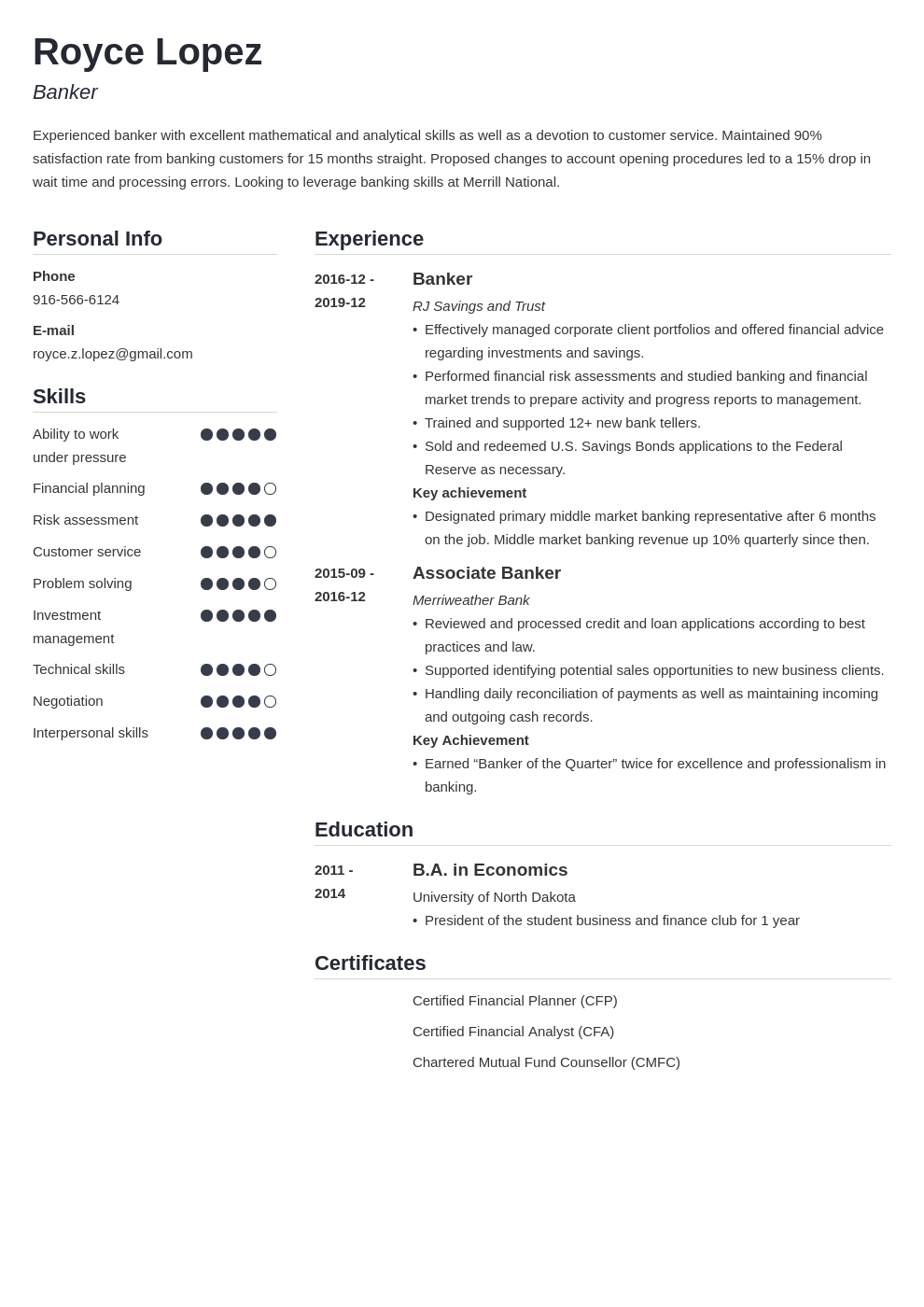
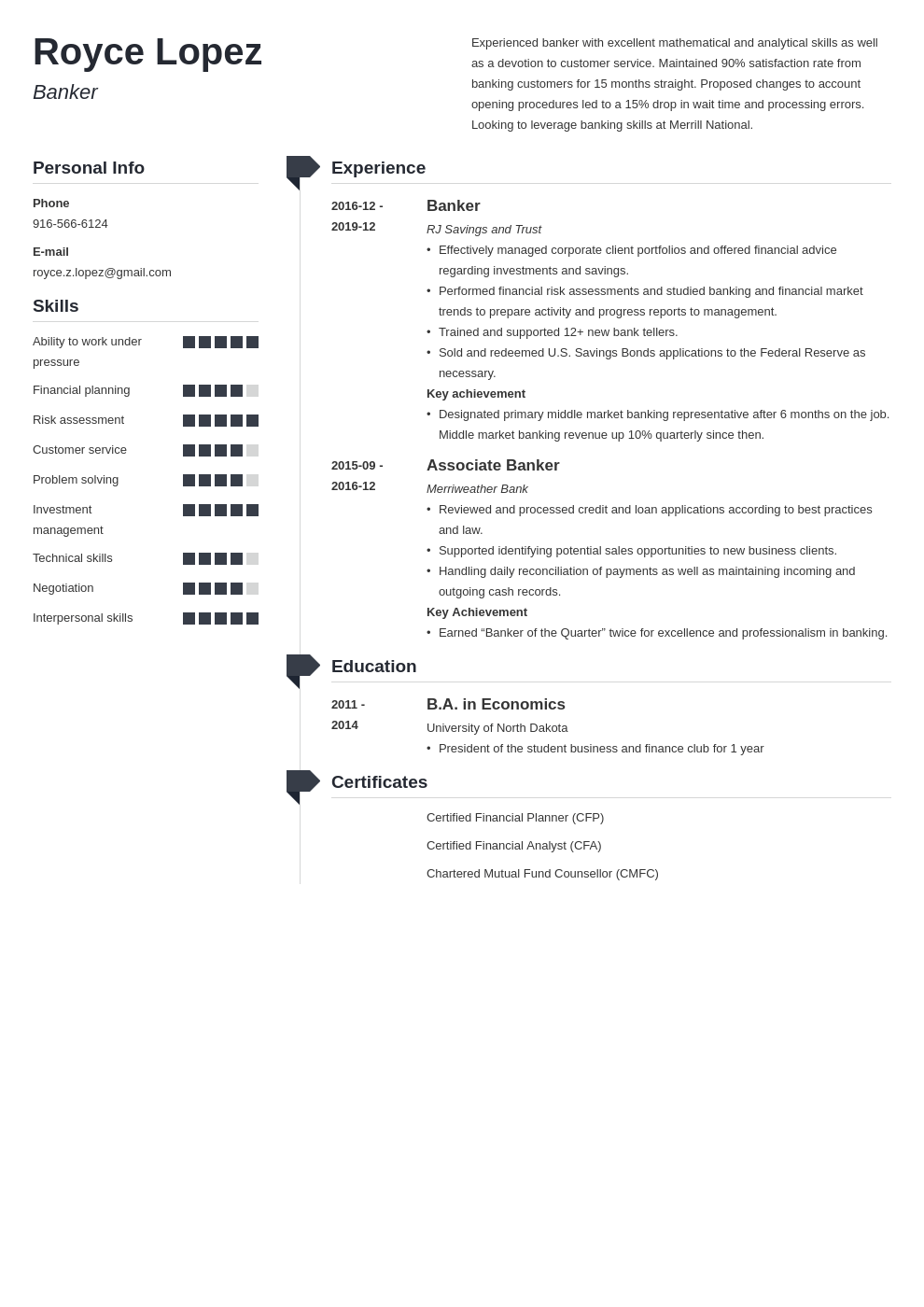
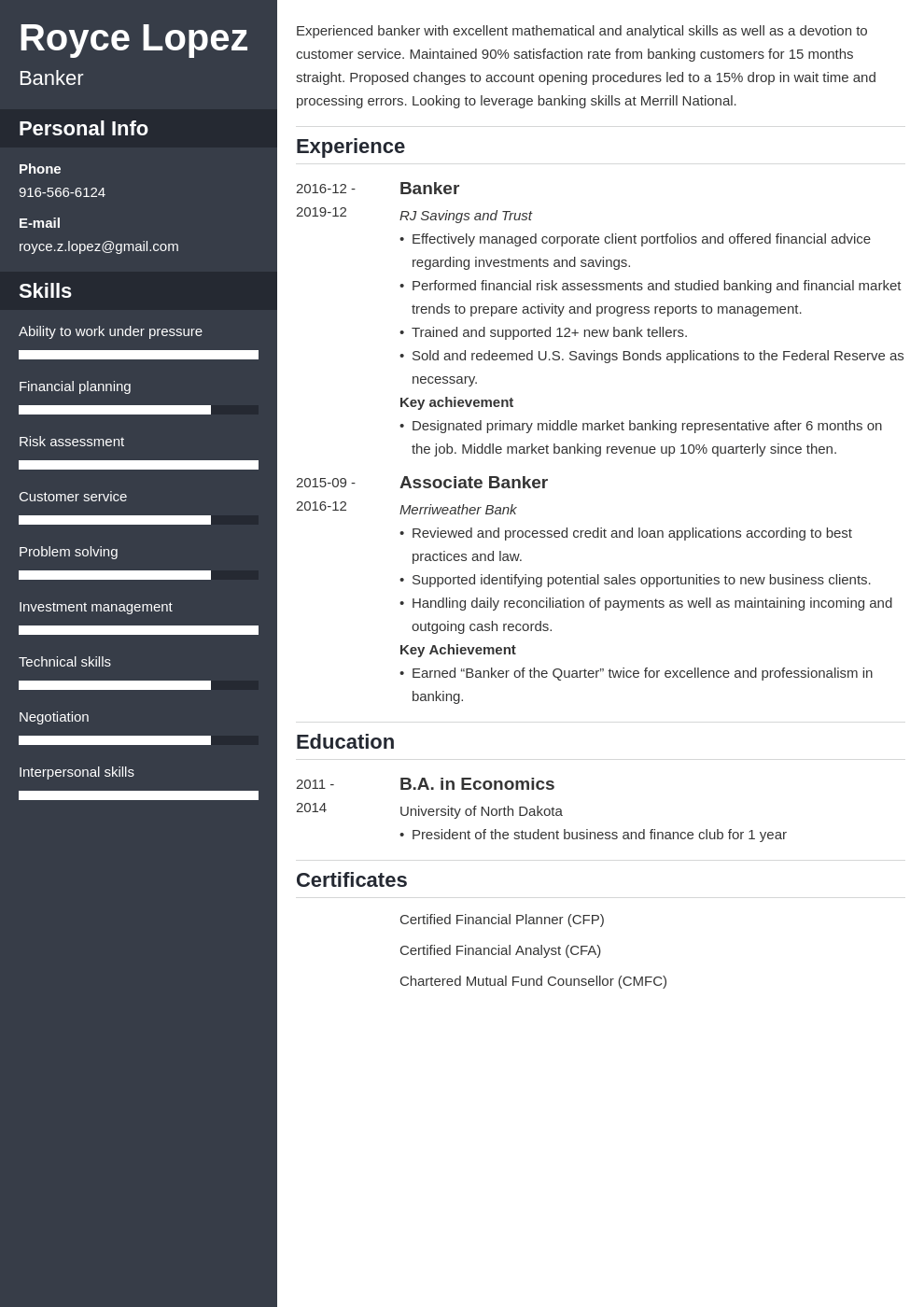
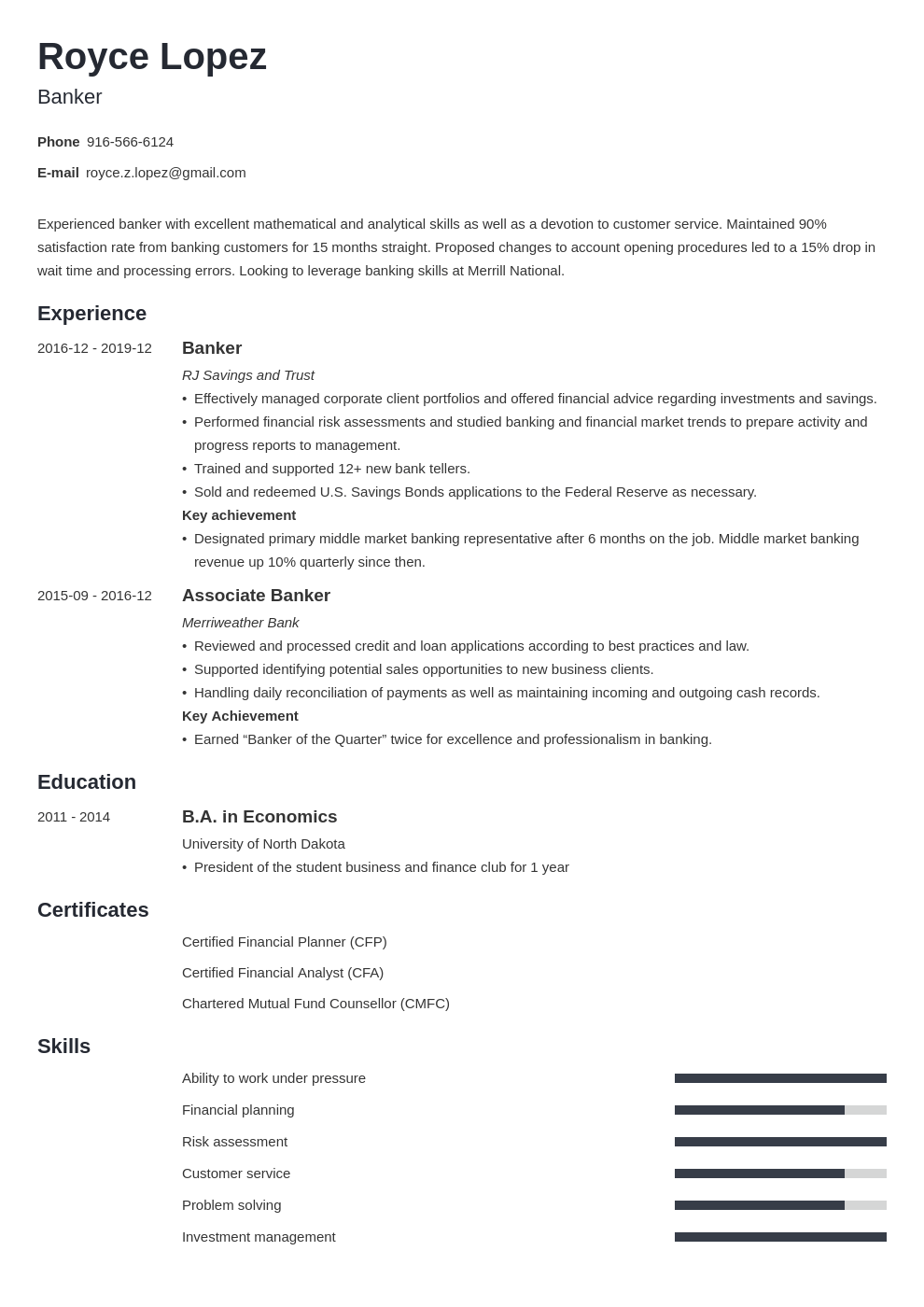

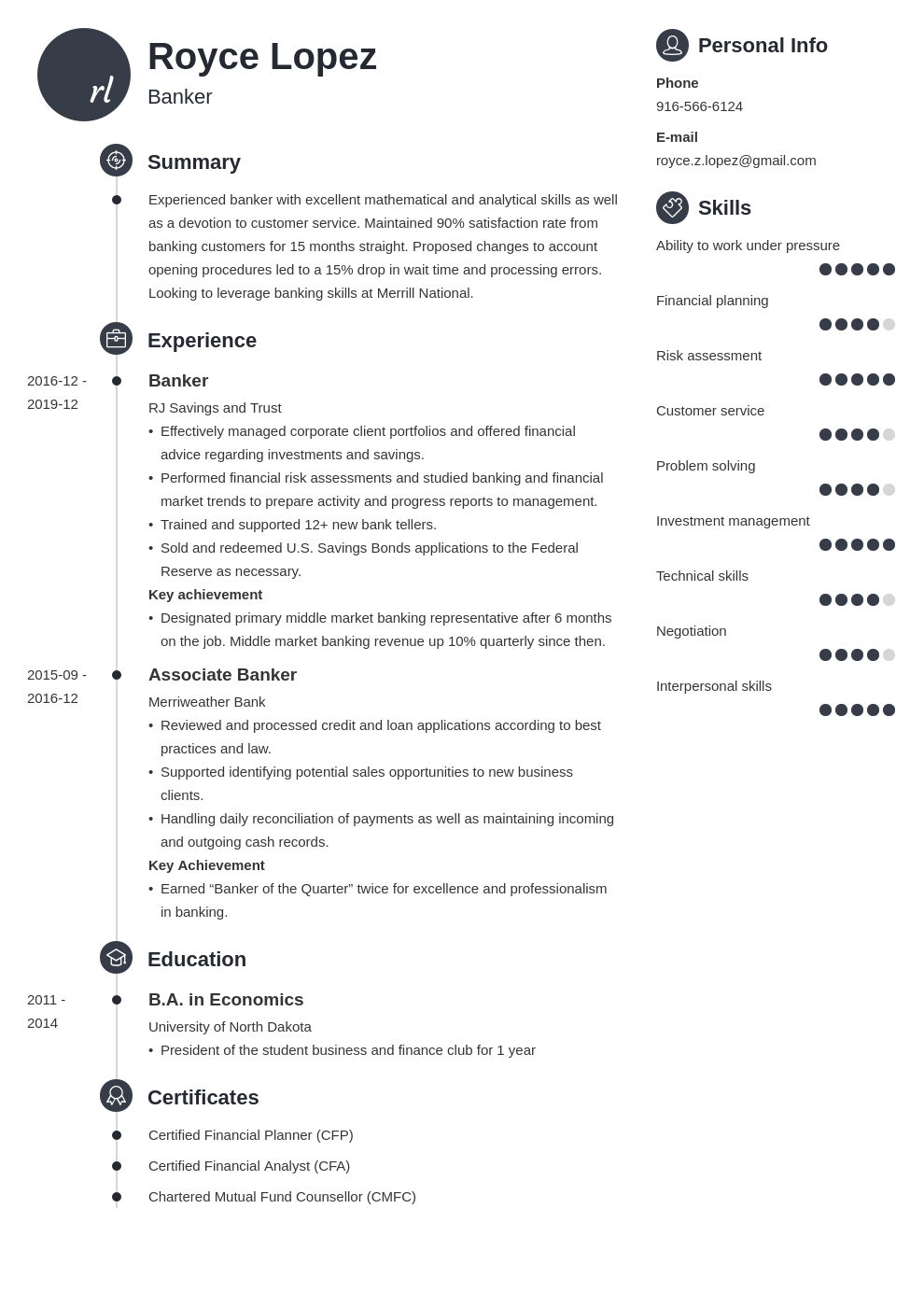

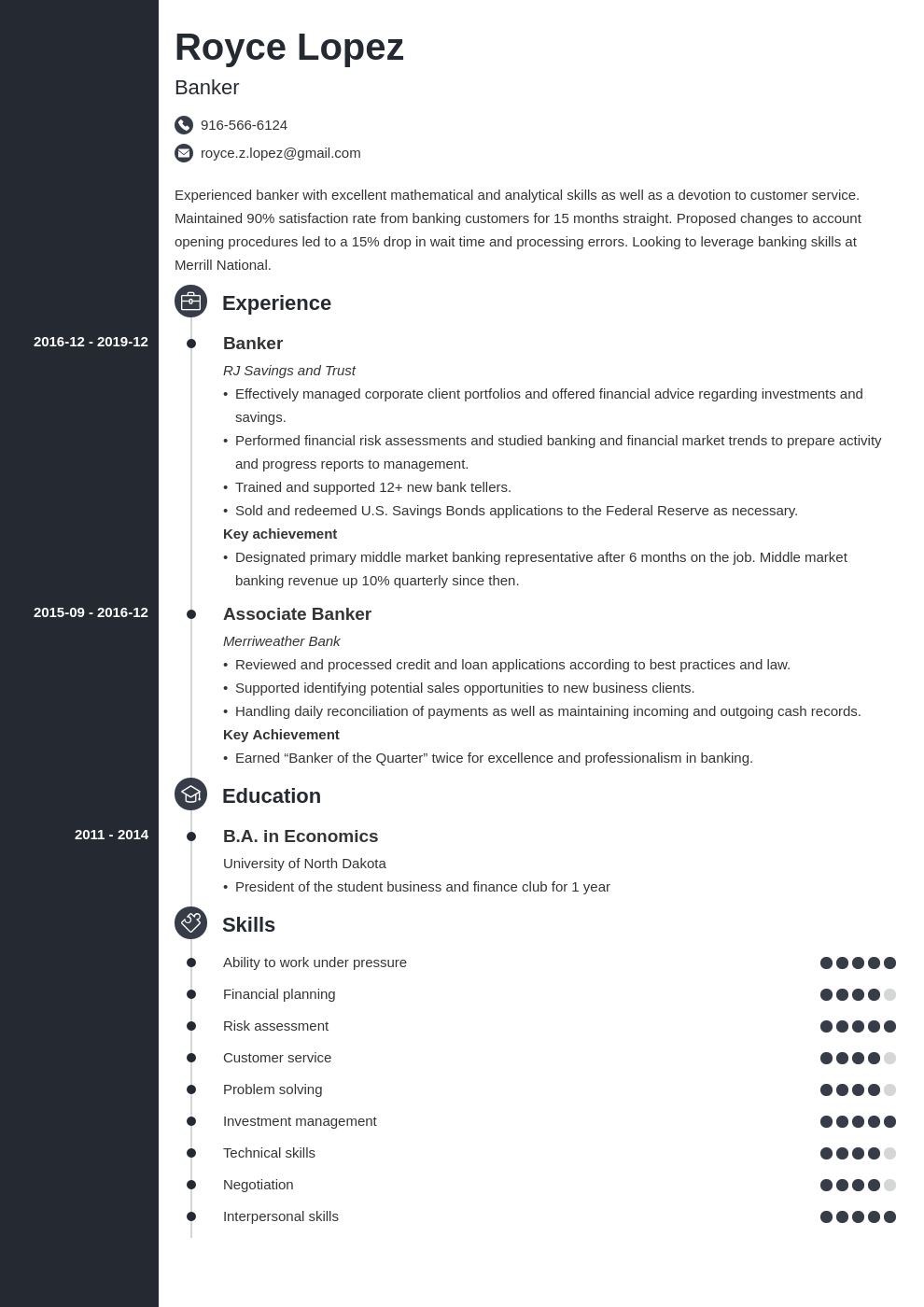
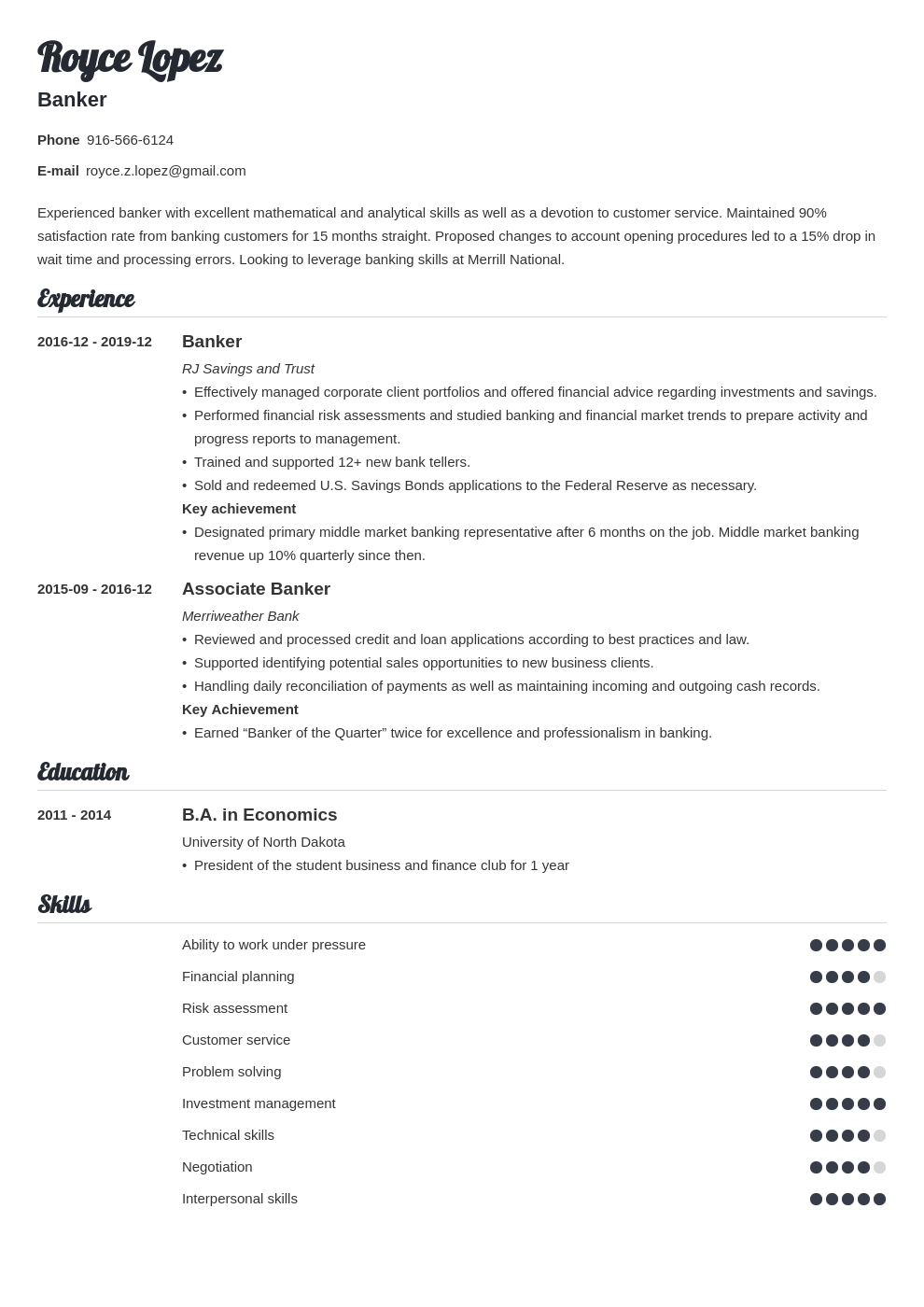
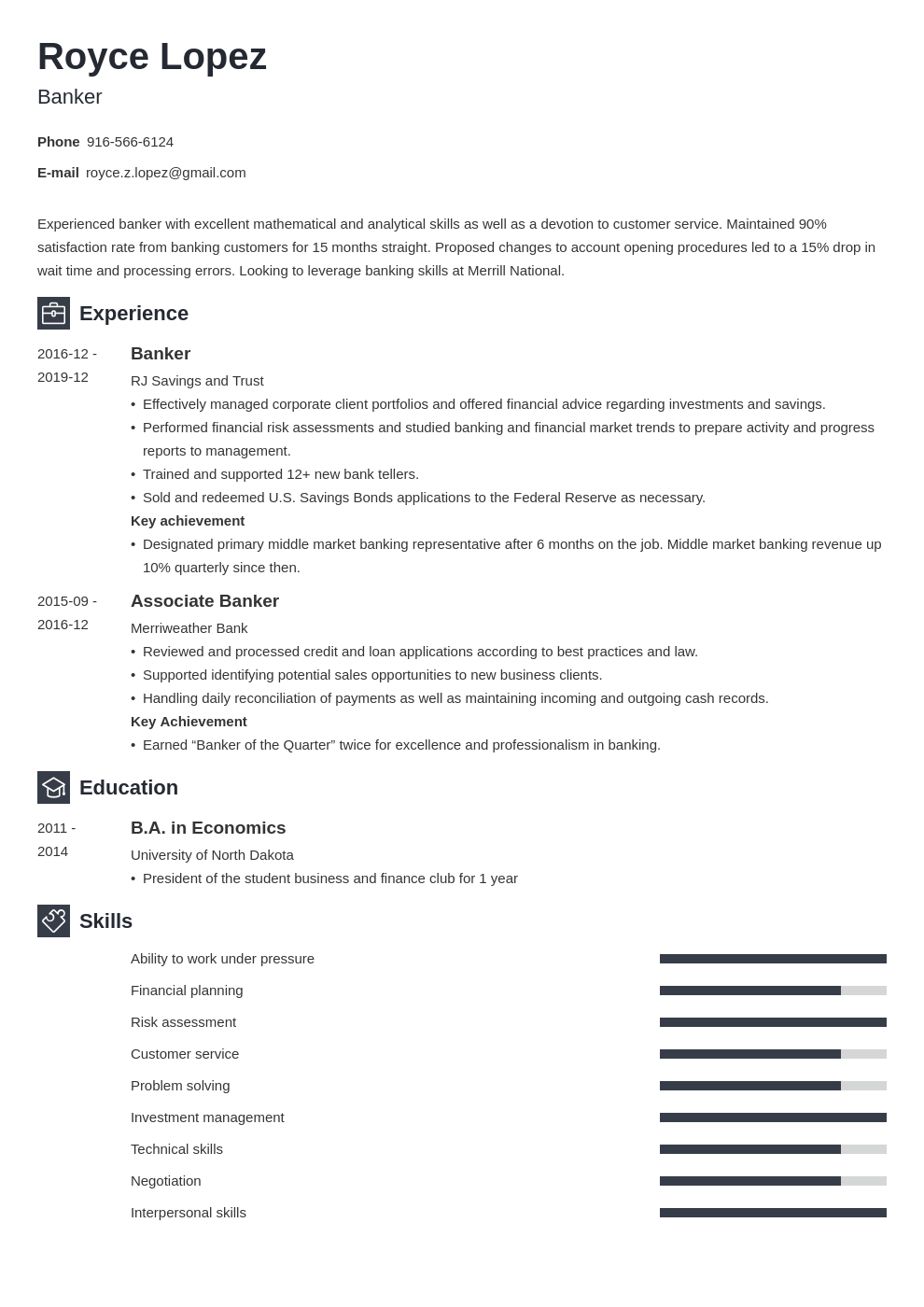
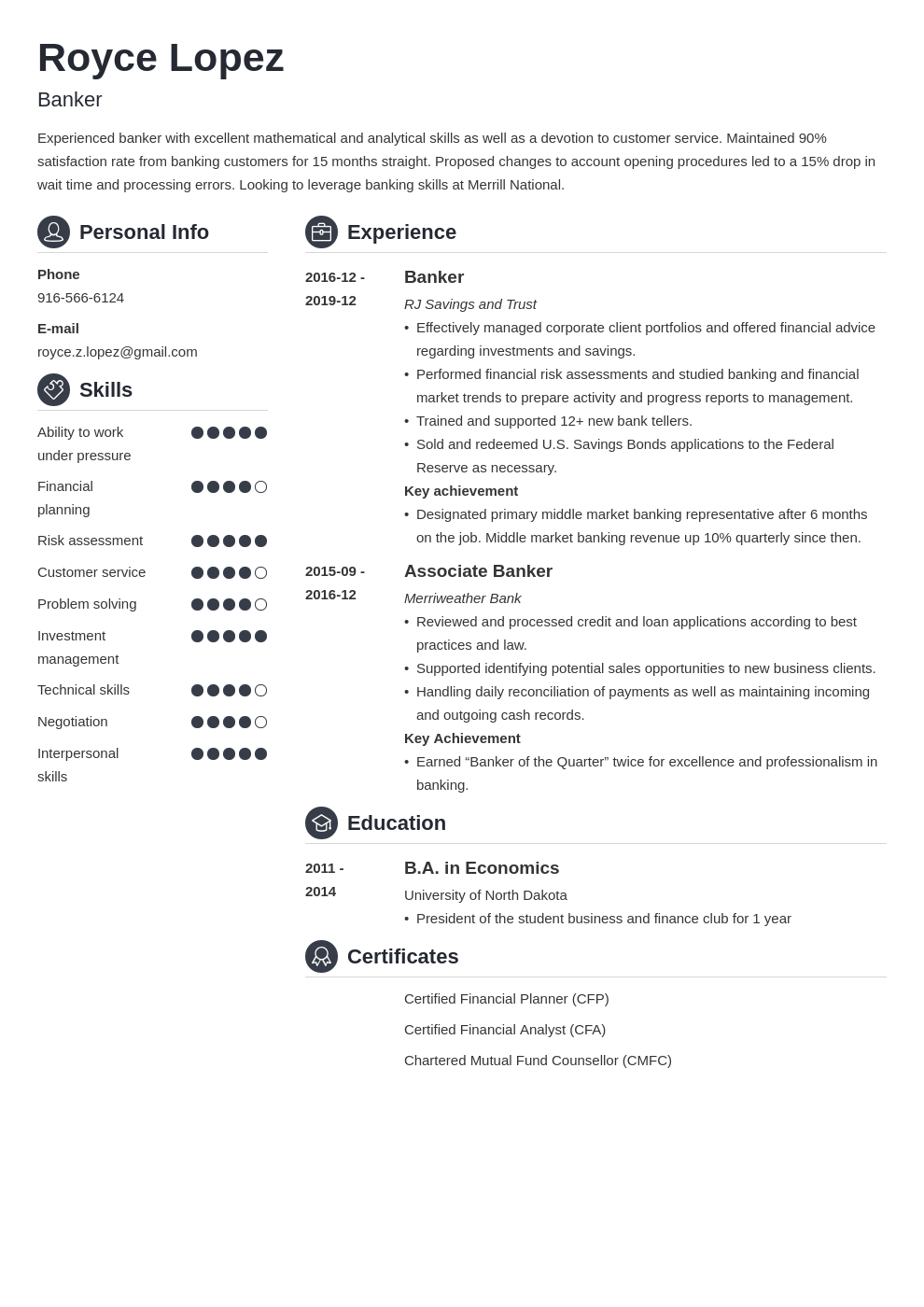
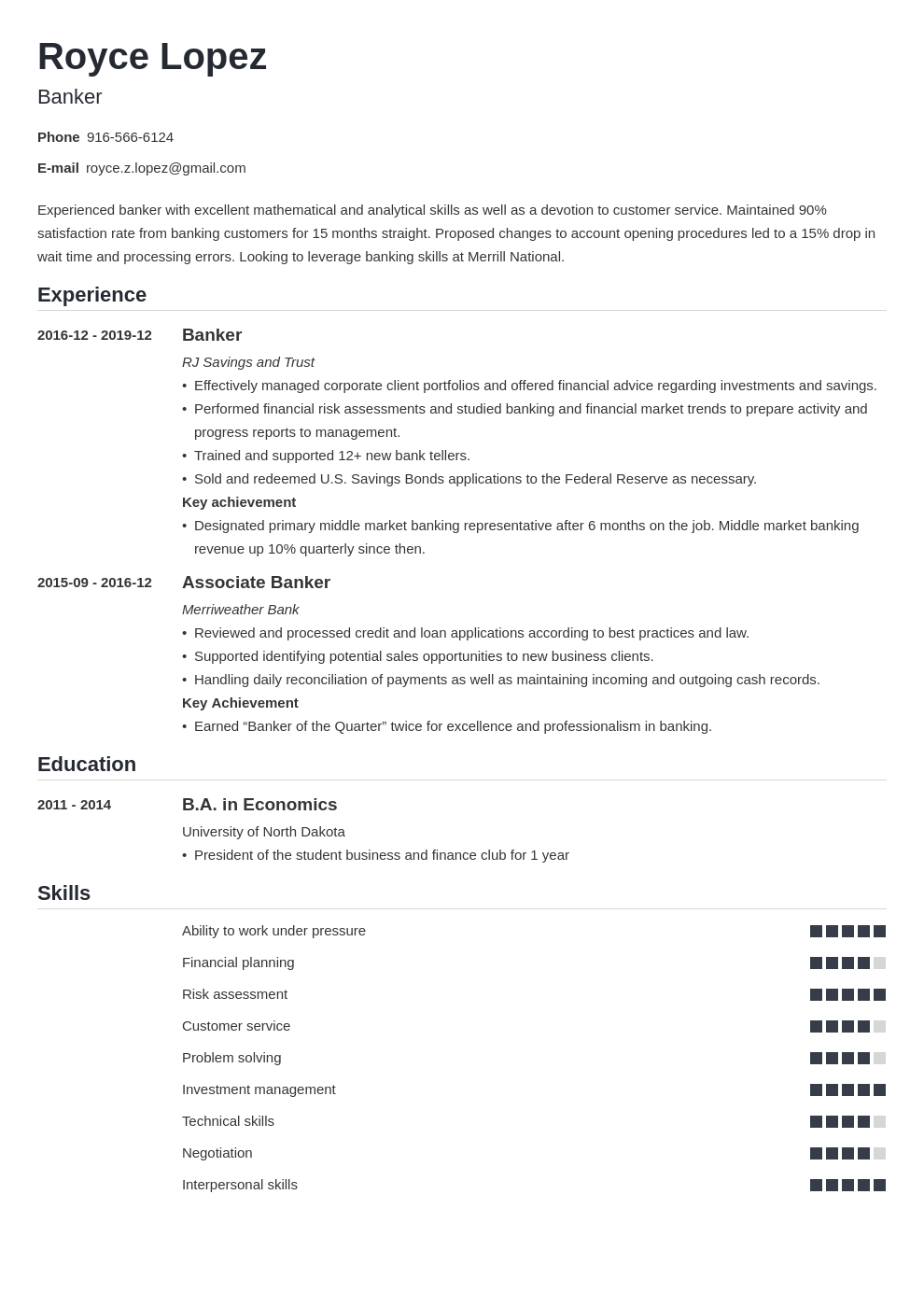
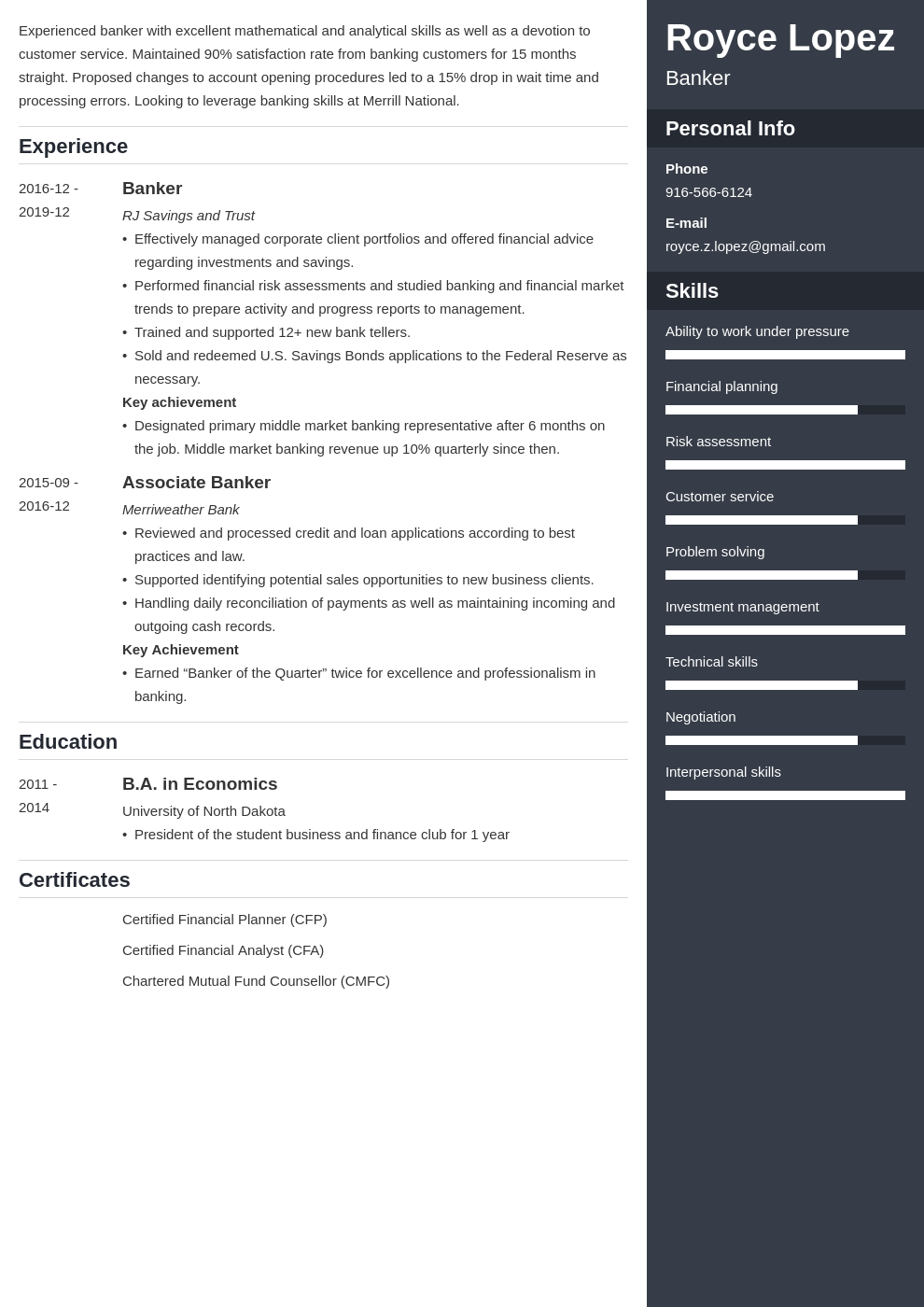

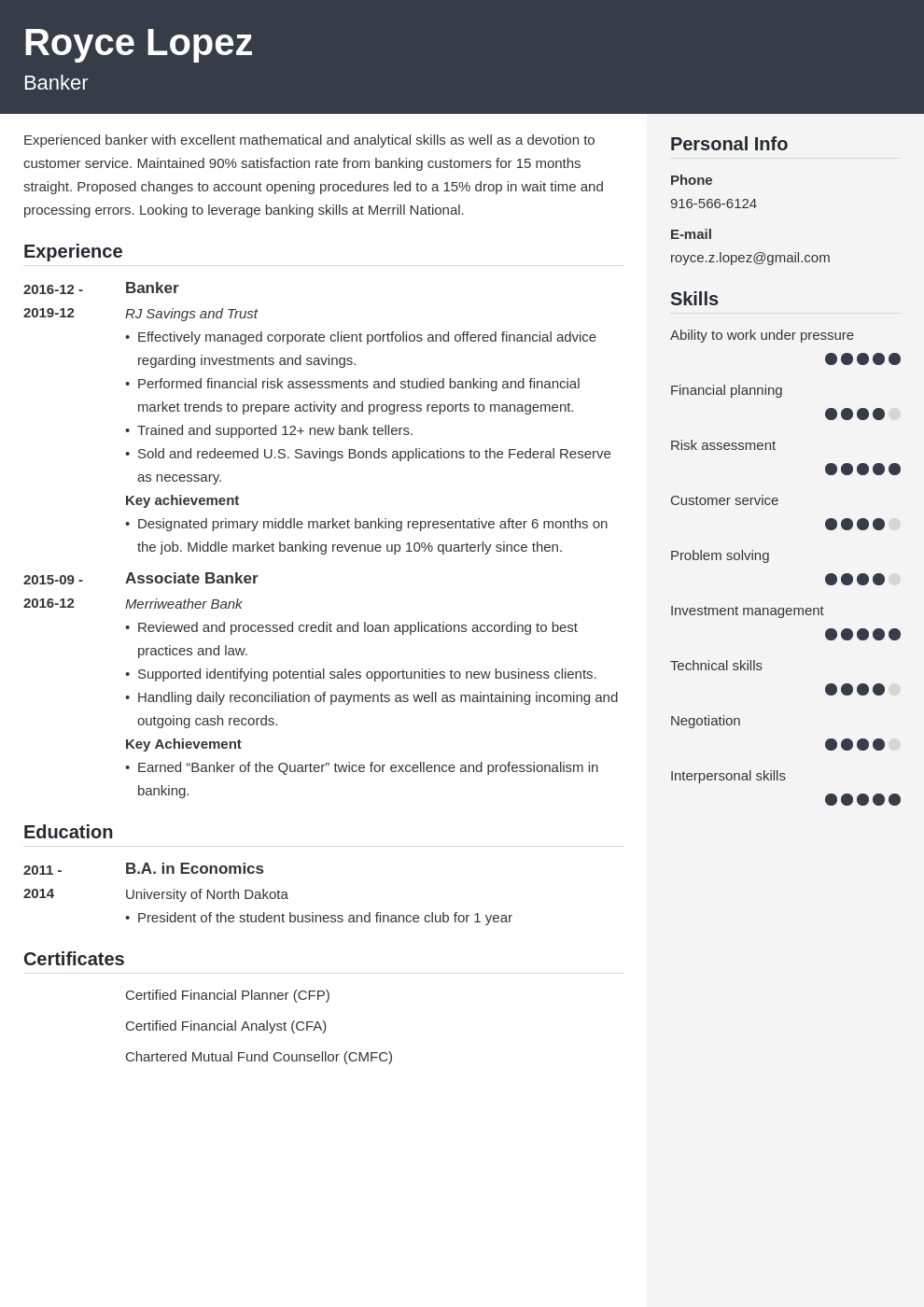

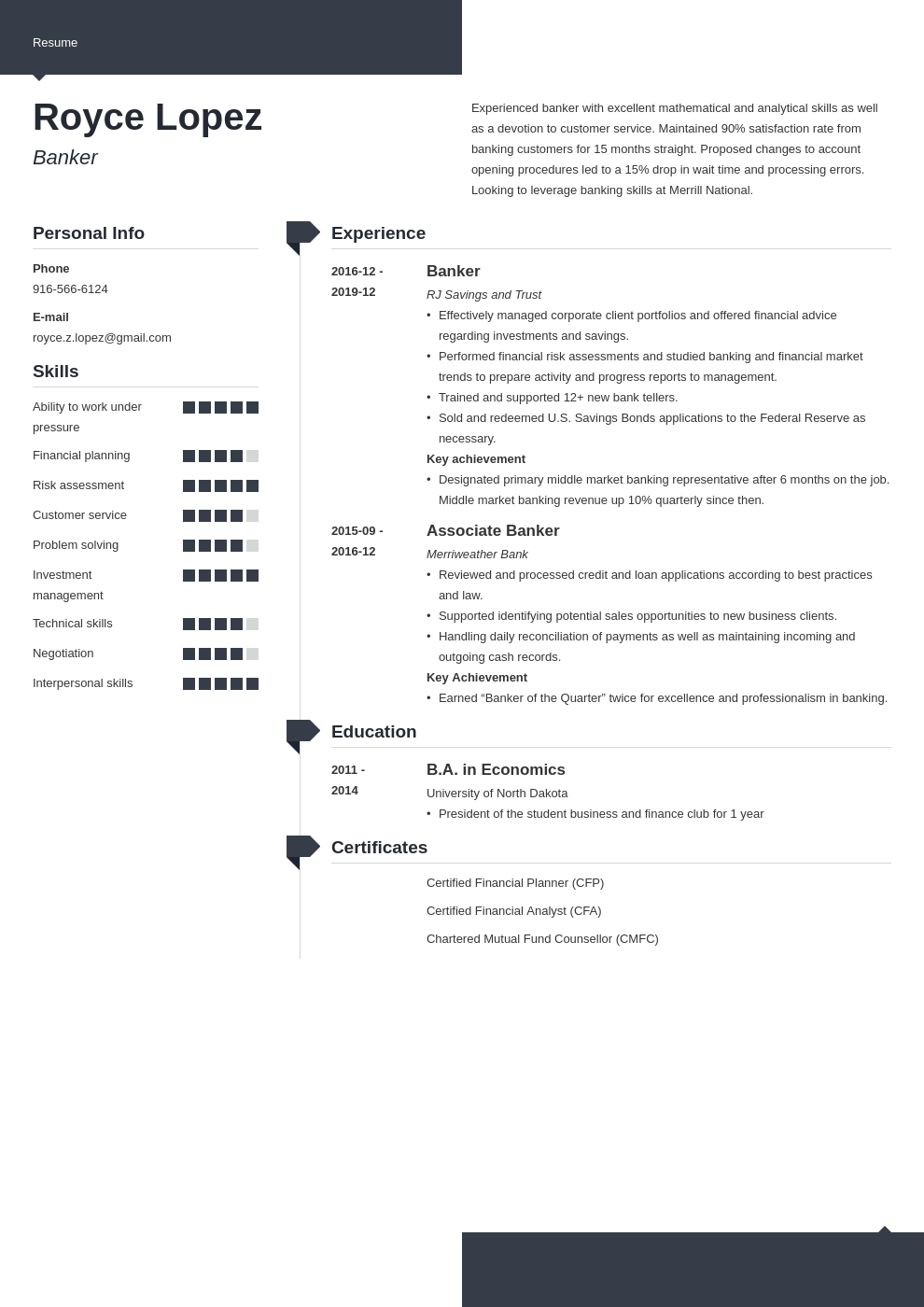
How to make a resume outline. Learn a basic format that is simple and proven to help you create a successful resume template. See examples and read more!
Not sure what kind of resume will boost your chances of landing an interview? Go for a traditional resume template. It’s much more than timelessly elegant.
Ever wondered what makes a good resume good? We found the 11 things your resume needs to be the very best.
![Traditional Resume Template [5+ Classic Resume Examples]](https://cdn-images.zety.com/pages/traditional_resume_2.jpg?fit=crop&h=250&dpr=2)
